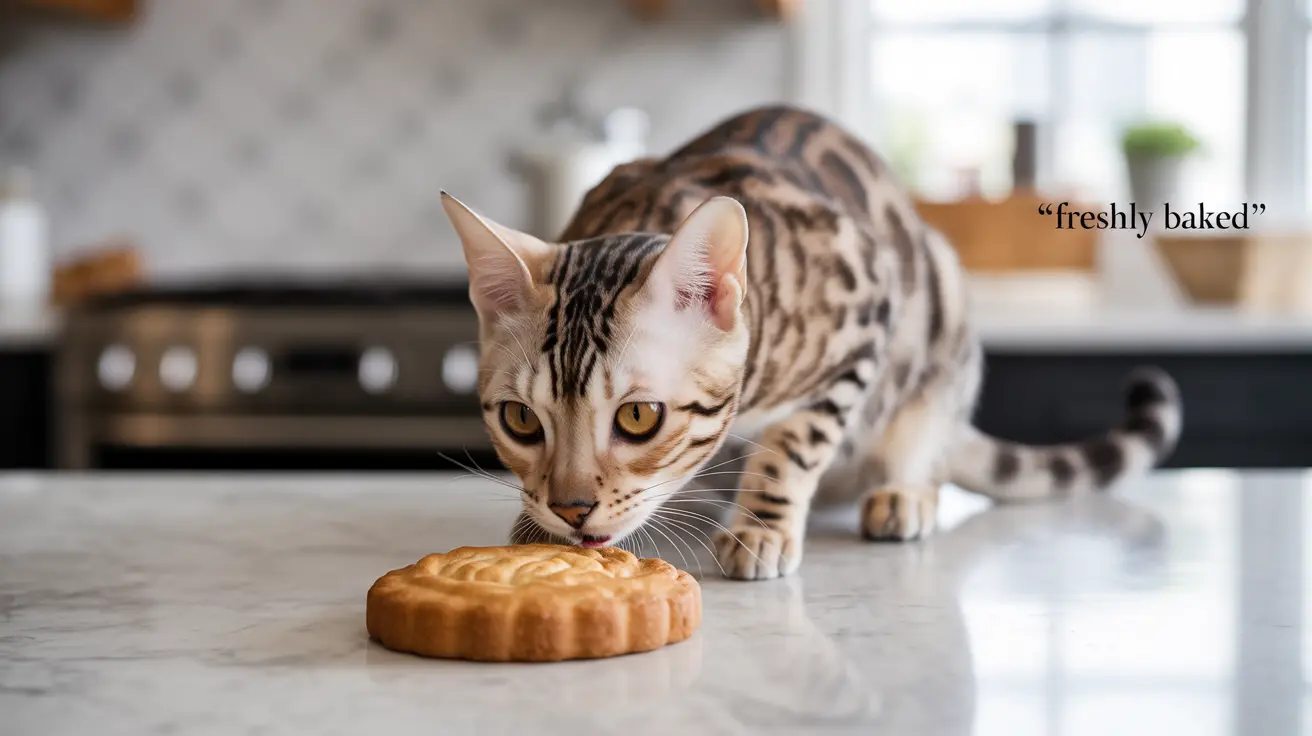As a cat owner, you might have wondered whether sharing your biscuits with your feline friend is safe. While those pleading eyes can be hard to resist, it's crucial to understand why biscuits aren't the best choice for your cat's health and what alternatives you should consider instead.
In this comprehensive guide, we'll explore the potential risks of feeding biscuits to cats, identify dangerous ingredients, and provide safer treat alternatives that align with your cat's nutritional needs.
Understanding Why Biscuits Are Problematic for Cats
Cats are obligate carnivores, meaning their bodies are designed to process and utilize nutrients primarily from animal-based proteins. Their digestive systems aren't equipped to handle the high carbohydrate content found in biscuits, which can lead to various health issues.
Standard biscuit ingredients like flour, sugar, and fats offer no nutritional value to cats and can potentially harm their health. Even plain, unsweetened biscuits contain unnecessary starches that cats' bodies struggle to process effectively.
Common Ingredients in Biscuits That Harm Cats
Dangerous Components
Several common biscuit ingredients can be harmful or even toxic to cats:
- Chocolate (toxic and potentially fatal)
- Artificial sweeteners, especially xylitol (extremely dangerous)
- Raisins and currants (can cause kidney failure)
- Nuts, particularly macadamia nuts (toxic)
- Excess salt (can lead to sodium poisoning)
Hidden Risks in "Plain" Biscuits
Even simple, plain biscuits pose risks due to:
- High carbohydrate content leading to weight gain
- Refined flour causing blood sugar spikes
- Preservatives that may trigger allergic reactions
- Salt levels exceeding feline dietary needs
Health Consequences of Feeding Biscuits to Cats
Short-term Effects
Immediate reactions to consuming biscuits may include:
- Digestive upset and vomiting
- Diarrhea
- Lethargy
- Dehydration
- Loss of appetite
Long-term Health Impacts
Regular consumption of biscuits can lead to serious health conditions:
- Obesity
- Diabetes
- Dental problems
- Pancreatic issues
- Chronic digestive disorders
Safe Treat Alternatives for Cats
Instead of biscuits, consider these healthy options:
- Commercial cat treats specifically formulated for felines
- Small pieces of cooked lean meat (chicken, turkey, or fish)
- Freeze-dried meat treats
- Cat-specific dental treats approved by veterinarians
What to Do If Your Cat Eats Biscuits
If your cat consumes biscuits, follow these steps:
- Determine what type of biscuit and ingredients were consumed
- Monitor for adverse reactions
- Contact your veterinarian if concerning symptoms develop
- Keep track of amount eaten and timing
- Watch for changes in behavior or bathroom habits
Frequently Asked Questions
Can cats eat biscuits safely, and what are the potential health risks?
While plain biscuits aren't immediately toxic, they're not safe for regular consumption. Risks include digestive issues, obesity, diabetes, and dental problems. Some biscuit ingredients can be toxic, making them potentially dangerous for cats.
How often can I give my cat biscuits without causing harm?
It's best not to give cats biscuits at all. Even small amounts can contribute to health issues, and there's no nutritional benefit. Instead, opt for cat-specific treats designed for feline dietary needs.
What ingredients in biscuits are most harmful to cats, and why?
The most dangerous ingredients include chocolate (toxic due to theobromine), xylitol (can cause liver failure), raisins (kidney toxicity), and excess salt (can lead to sodium poisoning). Even basic ingredients like flour and sugar can harm cats over time.
Are there any safe alternatives to biscuits that I can give my cat as treats?
Yes, safe alternatives include commercial cat treats, small pieces of cooked lean meat, freeze-dried meat treats, and veterinarian-approved dental treats specifically formulated for cats.
What should I do if my cat accidentally eats a biscuit containing toxic ingredients like chocolate?
If your cat consumes biscuits containing toxic ingredients, contact your veterinarian immediately. Note the type and amount of biscuit eaten, monitor your cat closely, and watch for symptoms like vomiting, diarrhea, or unusual behavior.
Conclusion
While sharing food with our pets can feel like an act of love, biscuits should never be part of your cat's diet. Focus instead on providing species-appropriate treats that support your cat's health and well-being. When in doubt, always consult with your veterinarian about safe treat options for your feline friend.






